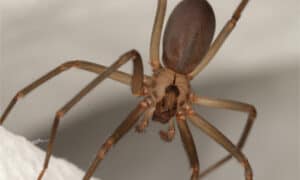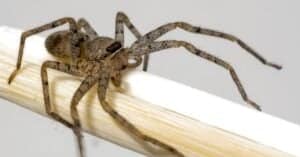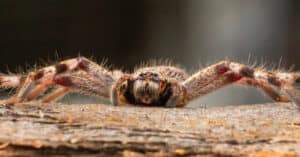How long spiders live without food varies from species to species. There is a wide variety of spiders out there, including a fairly large disparity in size. For the most part, spiders are solo creatures, preferring to take on the vast world on their own and, it means there’s more food around without another spider to share it with.
Spiders aren’t picky about when and how much they eat. If there is plenty of food on offer, they will practically gorge themselves. However, a spider will easily handle a few days without it. The spider’s game is a patient one and most spiders will spend the vast majority of their lives playing the wait-and-watch game.
Spiders are like every other living creature on the planet. They seek out places with an abundance of feeding opportunities, accessible water, and a good place to build a home. If they have easy access to water, they can go longer without food. With all of the above, spiders live for anywhere between 1 and 30 years.
How Long Can Spiders Live Without Food?
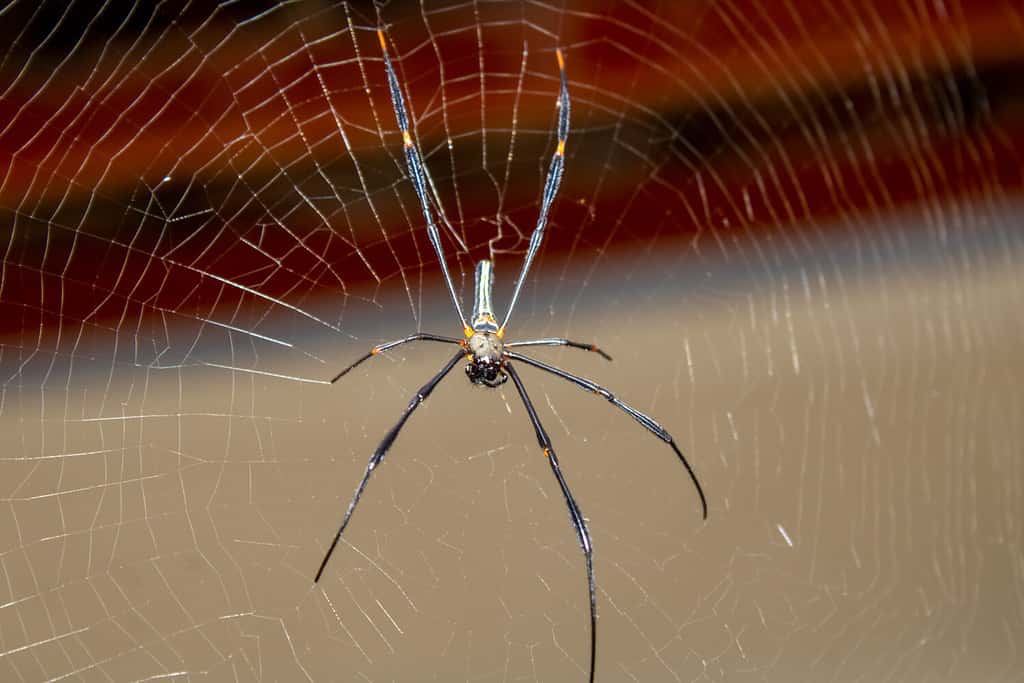
Spider is at the center of its web, awaiting incoming meals.
©Fawwaz Media/Shutterstock.com
The average spider will live for a month or two without food. They aren’t voracious eaters, though they don’t mind engaging in gluttonous behavior when the opportunity presents itself. Starving spiders will resort to extreme measures to survive, such as consuming their young.
Spiders aren’t dumb, however, and will set their webbing, trap doors, or ambush points up where the insects congregate. For instance, a water supply will draw other creatures and insects naturally. Not only will a spider set up shop close to that water supply for itself, but also because the water will draw in its prey.
Though there is a huge disparity in the length of life, depending on the species, all spiders fall within that 30 to 60-day window of starvation. As long as there is water in the neighborhood, that longevity increases as well. Spiders, within their ecosphere, are usually the predators, seeking out the prey. They are opportunistic feeders and aware, at some spider-like level, that food opportunities come and go.
How Do Spiders Live So Long Without Food?
Here’s where things get a little disgusting. However, if you want to know how spiders live without food for up to two months, the way they eat has something to do with it. If you use a straw to suck up a protein shake, you already have an idea of how a spider eats. It’s a slow process because the spider has to convert its food to something it can suck up.
The spider does this in a couple of ways, depending on whether it’s a web spider or one that hunts on the ground. First, its venom has a rapid desiccation effect, reducing the physical matter to something closer to a liquid state. Second, a web spider will spit a mixture of enzymes from their gut onto the prey to expedite the process.
Other spiders, specifically the kind that hunt on the ground without the benefit of a web, have a sort of grinding maul for a mouth. This grinding maul consists of chelicerae. These chelicerae, under a microscope, look like something out of a horror movie, with tiny, sharp points and hooks designed for grinding. These spiders essentially grind their prey into liquid before sucking them up.
The thing is, a spider has two guts. The first is the foregut and the second is the hindgut. The foregut stores food. For this reason, the digestive process may take up to three weeks. This is the primary reason spiders can live without food for a month or two.
Do Spiders Store Food In Their Webs?
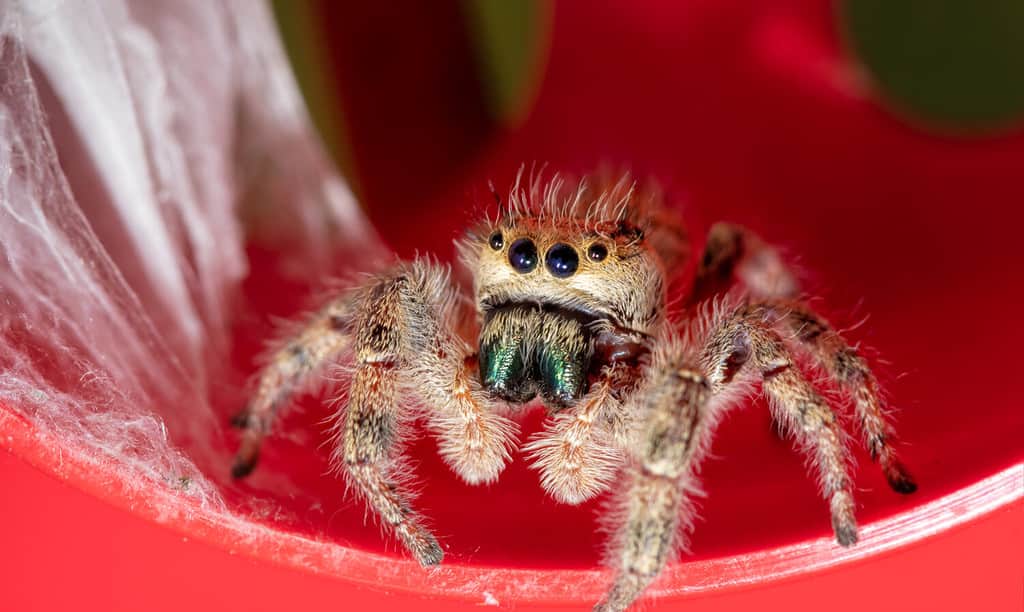
Spider webs come in all shapes and sizes for capturing their prey.
©Sari ONeal/Shutterstock.com
For the most part, spiders do not store food in their webs. Once an insect is captured, the spider will get to it in short order and begin the feeding process. However, there are always exceptions to the rule. Some spiders have a preternatural sense that a food shortage is either a current issue or on the horizon. These spiders may allow insects to sit in the web a little longer than normal.
Golden orb spiders are on an entirely different level. These spiders create their cache of previously captured delicacies they can feed on whenever they want. Orb spiders are much more likely to store a cache of food, especially if incoming food is few and far between.
This method of caching allows these spiders to live without food for longer than the typical, 30 to 60-day limit.
Spiders Have a Low Metabolism
Spiders have another helpful feature going for them as well. They have a very low metabolism. This means they don’t have to eat all the time because their body processes their food intake at a very slow rate. Spiders most likely developed this trait because food is not always a consistent thing.
As slow as their metabolism is, it’s also adaptable according to the environment and changes within that environment. This boils down to an increase or decrease of metabolism according to the ambient temperature. However, it does affect how much food the spider needs and how long it takes to digest and process food.
Spiders who currently have a lower metabolism and are caching their food, won’t need food for longer periods. Also, even though spiders are generally loners, they do have to breed from time to time. Whenever a male spider is near a female spider, the male’s metabolism will increase.
Final Thoughts
Spiders can live without food for 1 or 2 months for several reasons, including slow metabolism, opportunistic feeding, the long feeding process, storage of food within their stomachs, and caching their food (some spiders and only when necessary).
After all, if you think about a house spider in a clean house, it’s hard to imagine that it gets a lot of incoming insect food every day. The presence of water is a helpful factor as well. It draws in other insects and allows the spider to go a little longer without food.
Spiders are little tanks, with a load of built-in defensive mechanisms that can deal with scarcity far better than the other insects and animals around them. Both the web-building and hunter varieties of spiders have similar ways of dealing with a food drought. Thanks to all of these factors, that spider hiding out under your bed will live just a little longer than you realize.
The photo featured at the top of this post is © pratan ounpitipong/Shutterstock.com
Thank you for reading! Have some feedback for us? Contact the AZ Animals editorial team.




